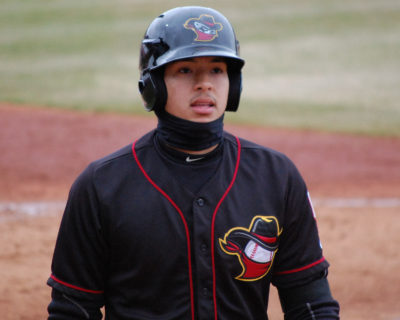
In 2013, the Houston Astros finished their season 51-111 and 45 games back in their division. This year they nearly doubled that win total, winning 101 games and are now in the World Series versus the Los Angeles Dodgers.
We saw this last year too. The Chicago Cubs spent 2010-2014 towards the bottom of the National League Central, slowly building a young, talented roster that eventually made the playoffs in 2015 and then won the World Series in 2016.
These two teams have succeeded at a strategy the NBA trailblazed: tanking.
Tanking is virtually a strategy to intentionally do less than everything you can to win in order to accumulate better draft picks.
The NBA is full of tanking, most notably in Philly; where “trust the process,” is the saying the Philadelphia 76ers and their fans believe will one day vault them from the league’s basement to contending for the NBA title. Sam Hinkie, the former 76ers general manager, chose to put out year after year of unbearably awful basketball in order to stock up on top draft picks with the hope that one day, these assets would help them eventually be great.
Now the 76ers have some of the best young talent in basketball in Ben Simmons and Joel Embiid, but it is yet to be seen if they can make “the process” worth it.
That isn’t the case in the MLB. The Astros and Cubs prove that tanking in the MLB can work. During the rough stretch of losing seasons Astros fans endured, they managed to gather three of the most exciting position players in the game today: shortstop Carlos Correa, second baseman Jose Altuve and outfielder George Springer. Left-hander Dallas Keuchel and right-hander Lance McCullers Jr. round out five players in their twenties who emerged from Houston’s farm system.
The Cubs took 2016 NL MVP Kris Bryant second overall in 2012, Kyle Schwarber fourth in 2014 and Javier Baez ninth in 2011. While they hit on all of these selections, they also made critical trades for Jake Arrieta, Anthony Rizzo and Kyle Hendricks with the roster flexibility that tanking provided.
But this trend is relatively new to the league. While teams have been tanking in the NBA for years, the MLB once held a philosophy more along the lines of: Why should we invest so much on kids we don’t know will make it to the show when there were always so many talented veterans available?
After-all the MLB is the league known for more blockbuster trades and big free-agent signings of established veterans than the NBA or the NFL for that matter. In fact, some NFL teams like the Cleveland Browns are currently flirting with tanking. Their version of “the process” seems to be to gather as many high draft picks as possible, and figure out the rest later. At this point, it is hard to differentiate whether tanking in the NFL just doesn’t work, or if it looks like it doesn’t because the Browns cannot properly evaluate players in the draft.
So why does tanking seem to work in the MLB so far? Well, it could just be that Cubs general manager Theo Epstein and Astros general manager Jeff Luhnow know how to evaluate prospects. Epstein broke “The Curse of the Bambino” by piecing together castoffs and misfits, but he broke “The Curse of the Billy Goat” by shamelessly blowing up the Cubs only to build them back from the bottom. Luhnow began his baseball career learning the Moneyball strategy that changed the way scouts and GM’s evaluated players.
Or maybe it is something else, but regardless, while the NBA is changing its draft process to disincentivize tanking, we should only expect to see more teams in the MLB tank while they can with help from the Collective Bargaining Agreement signed in 2011 that brought spending limits into the MLB draft and the international signing market that favored the league’s worst teams.
Because of the 2011 CBA and the success the Astros and Cubs are having, teams like the Philadelphia Phillies, Atlanta Braves and most notably the Chicago White Sox, who boast arguably baseball’s best farm system after trading their best player Chris Sale, are setting themselves up for future success.
It’s no surprise that we will see plenty of MLB teams in the coming seasons blowing up their rosters and tanking in hopes to compete further down the line, but it is unlikely they will all fare as well as Chicago and Houston have.

















































































































